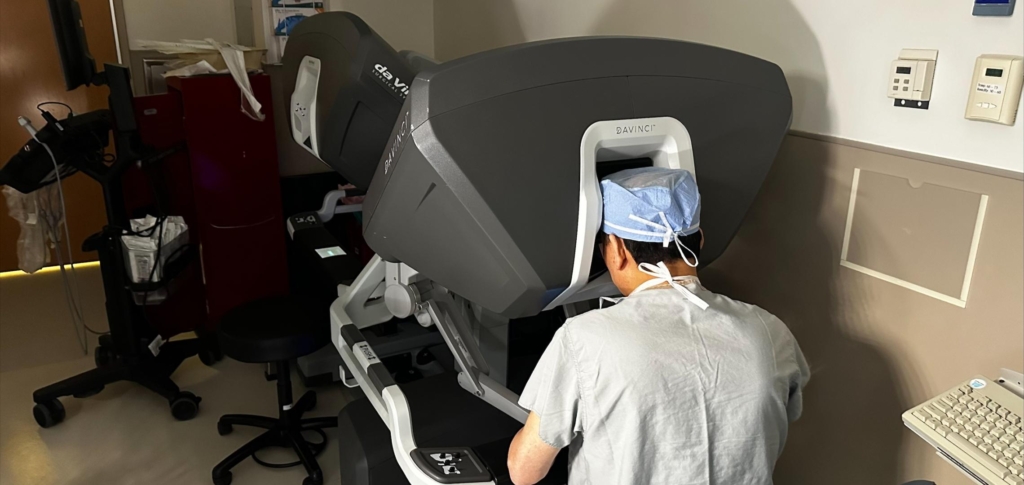
Baylor surgeon leads team performing first robotic heart transplant surgery
Surgeons at Baylor St. Luke’s Medical Center successfully performed a fully robotic heart transplant on an adult patient—the first reported in the United States. Using a surgical robot, lead surgeon Kenneth Liao, M.D., Ph.D., FACS, professor and chief of cardiothoracic transplantation and circulatory support at Baylor College of Medicine and chief of cardiothoracic transplantation and mechanical circulatory support at Baylor St. Luke’s, and his team made small, precise incisions, eliminating the need to open the chest and break the breast bone. Dr. Liao removed the diseased heart, and the new heart was implanted through preperitoneal space, avoiding chest incision.
“Opening the chest and spreading the breastbone can affect wound healing and delay rehabilitation and prolong the patient’s recovery, especially in heart transplant patients who take immunosuppressants,” said Dr. Liao. “With the robotic approach, we preserve the integrity of the chest wall, which reduces the risk of infection and helps with early mobility, respiratory function and overall recovery.”
In addition to less surgical trauma, the clinical benefits of robotic heart transplant surgery include avoiding excessive bleeding from cutting the bone and reducing the need for blood transfusions, which minimizes the risk of developing antibodies against the transplanted heart.
Before the transplant surgery, the 45-year-old patient had been hospitalized with advanced heart failure since November 2024 and required multiple mechanical devices to support his heart function. He received a heart transplant in early March and after heart transplant surgery, he spent a month in the hospital before being discharged home, without complications.
“This transplant shows what is possible when innovation and surgical experience come together to improve patient care. Our goal is to offer patients the safest, most effective and least invasive procedures, and robotic technology allows us to do that in extraordinary ways,” said Dr. Liao.
“This robotic heart transplantation represents a remarkable, giant step forward in making even the most complex surgery safer and we are delighted to offer this great success to the world,” said Todd Rosengart, M.D., MBA, FACS, chair of the Michael E. DeBakey Department of Surgery at Baylor.


